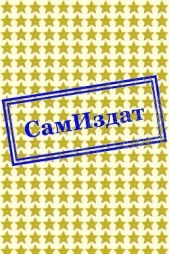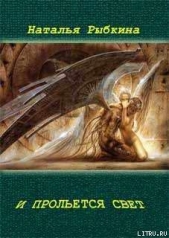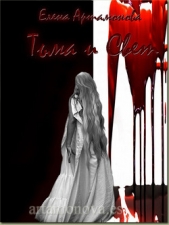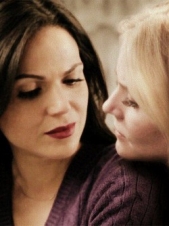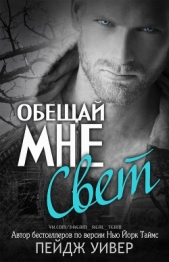На исходе дня. История ночи
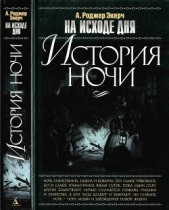
На исходе дня. История ночи читать книгу онлайн
Книга известного американского ученого А. Роджера Экерча "Ha исходе дня. История ночи" перевернула представления человека о темном времени суток. Казалось бы, что может случиться с людьми после заката солнца, когда они отдыхают или спят? Но по убеждению автора, именно ночью происходит много интересного, таинственного и забавного. Ночь — это убежище от обыденности, пора влюбленных, время действий добрых и злых сил. Кто-то отправляется развлекаться на балы и маскарады, кто-то спешит в таверну или кабачок, а кое-кто предпочитает посвящать ночные часы усердной молитве. Под покровом тьмы совершаются и различные преступления — от мелких краж до жестоких убийств. При свете свечей проводят собрания члены тайных обществ и сект. Ночью занимаются сексом, болеют, рассказывают страшные истории, делают записи в дневнике, сочиняют книги, мечтают… Автор подробно описывает ночную жизнь людей разных сословий в странах Европы и Америки в период с XVI и до середины XIX века, когда в мир пришло искусственное освещение, прорезавшее ночную тьму. Наряду с документальными текстами исследователь приводит немало захватывающих, пугающих и комических историй, оставшихся в памяти нескольких поколений.
Внимание! Книга может содержать контент только для совершеннолетних. Для несовершеннолетних чтение данного контента СТРОГО ЗАПРЕЩЕНО! Если в книге присутствует наличие пропаганды ЛГБТ и другого, запрещенного контента - просьба написать на почту [email protected] для удаления материала
76. Jean Anthelme Brillat-Savarin, The Physiology of Taste, or, Meditations on Transcendental Gastronomy, trans. M. F. K. Fisher (New York, 1949), 222; Wehr, "Clock for All Seasons," 338; Wehr, "Changes in Nightlength," 269–273; личные сообщения Вера от 23 и 31 декабря 1996 года.
77. Carter A. Daniel, ed., The Plays of John Lyly (Lewisburg, Pa., 1988), 123; Breton, Works, II, 12; Barbara E. Lacey, ed., The World of Hannah Heaton: The Diary of an Eighteenth-Century New England Farm Woman (DeKalb, II1,2003), 83; Aug. 20,1737, Kay, Diary, 12, 39. Несмотря на меньшую вероятность того, что сновидения можно вспомнить и усвоить, они, конечно, тоже приходят во время «утреннего», или «второго», сна (Ekirch, «Sleep We Have Lost,» 382).
1. GM 25 (1755), 57.
2. M. De Valois d'Orville, Les Nouvelles Lanternes (Paris, 1746), 4; May 10,1797, Drinker, Diary, II, 916; R. L. W., Journal of a Tour from London to Elgin Made About 1790… (Edinburgh, 1897), 74; Hans-Joachim Voth, Time and Work in England, 1750–1830 (Oxford, 2000), 67–69.
3. Elkan Nathan Adler, ed., Jewish Travellers: A Treasury of Travelogues from 9 Centuries (New York, 1966), 350; Robert Semple, Observations on a Journey through Spain and Italy to Naples… (London, 1808), II, 83; Humphrey Jennings, Pandaemonium, 1660–1886: The Coming of the Machine as Seen by Contemporary Observers (New York, 1985), 115; Boston Newsletter, Feb. 27, 1772; Duke de la Rochefoucault Liancourt, Travels through the United States of North America… (London, 1799), II, 380.
4. PA, July 15, 1762; Thomas, Religion and the Decline of Magic, 650–655; James Sharpe, Instruments of Darkness: Witchcraft in England, 1550–1750 (New York, 1996), 229–230, 257–275,290—293; Alan Macfarlane, The Culture of Capitalism (Oxford, 1987), 79–82, 100–101.
5 DUR, Sept. 4,1788; SAS, XII, 244; "Your Constant Reader," and "A Bristol Conjuror," BC, Feb. 17,1762; "Crito," LEP, Mar. 15,1762; Jonathan Barry, "Piety and the Patient: Medicine and Religion in Eighteenth Century Bristol," in Roy Porter, ed., Patients and Practitioners: Lay Perceptions of Medicine in Pre-Industrial Society (Cambridge, 1985), 160–161.
6. Diary of James Robson, 1787, Add. Mss. 38837, fo. 9, BL; Winslow C. Watson, ed., Men and Times of the Revolution; or, Memoirs of Elkanah Watson, Including Journals of Travels (New York, 1856), 96; Bryan Edwards, "Description of a Nocturnal Sky, as Surveyed Nearly Beneath the Line," Massachusetts Magazine 7 (1795), 370; "Vaiverdi," Literary Magazine 7 (1807), 449; Macfarlane, Culture of Capitalism, 80–81,102–103. О широком распространении телескопов см., например: Nov. 12, 1720, The Family Memoirs of the Rev. William Stukeley, M. D…. (London, 1882), I, 75; Sept. 30,1756, J. B. Paul, ed., Diary of George Ridpath (Edinburgh, 1910), 92; June 22,1806, Drinker, Diary, III, 1940.
7. M. D'Archenholz, A Picture of England… (London, 1789), 1,136; Nikolai Mikhailovich Karamzin, Letters of a Russian Traveler, 1789–1790… (New York, 1957), 181, 268; Mr. Pratt, Gleanings through Wales, Holland, and Westphalia (London, 1798), 167; Peter Borsay, The English Urban Renaissance: Culture and Society in the Provincial Town, 1660–1770 (Oxford, 1989), 22,34.
8. Torrington, Diaries, II, 195,196,1, 20; John Henry Manners, Journal of a Tour through North and South Wales (London, 1805), 64; Gary Cross, A Social History of Leisure since 1600 (State College, Pa., 1990), 59.
9. James Essex, Journal of a Tour through Part of Flanders and France in August 1773, ed. W. M. Fawcett (Cambridge, 1888), 2.
10. Pierre Goubert, The Ancien Régime: French Society, 1600–1750, trans. Steve Cox (London, 1973), 223; William Edward Mead, The Grand Tour in the Eighteenth Century (New York, 1972), 222,359; Christopher Friedrichs, The Early Modern City, 1450–1750 (London, 1995), 25.
11. Midnight the Signal: In Sixteen Letters to a Lady of Quality (London, 1779), 1,147, passim; Koslofsky, "Court Culture," 744; Barbara DeWolfe Howe, Discoveries of America: Personal Accounts of British Emigrants to North America during the Revolutionary Era (Cambridge, 1997), 217; Pinkerton, Travels, II, 790.
12. US and WJ, Oct. 13,1733; A Humorous Description of the Manners and Fashions of Dublin (Dublin, 1734), 5; The Memoirs of Charles-Lewis, Baron de Pollnitz… (London, 1739), I, 411; Robert Anderson, The Works of John Moore, M. D…. (Edinburgh, 1820), 171; Roy Porter, The Creation of the Modem World: The Untold Story of the British Enlightenment (New York, 2000), 435–436; Peter Clark, British Clubs and Societies, 1580–1800: The Origins of an Associational World (Oxford, 2000).
13. British Journal, Sept. 12,1730.
14. Henry Fielding, An Enquiry into the Causes of the Late Increase of Robbers and Related Writings, ed. Malvin R. Zirker (Middletown, Ct, 1988), 231; LC, Sept. 9,1758, Mar. 19, 1785; J. Hanway, Letter to Mr. John Spranger… (London, 1754), 34; Frédérique Pitou, "Jeunesse et Désordre Social: Les 'Coureurs de Nuit' à Laval au XVIIIe Siècle," Revue d'Histoire Moderne et Contemporaine 47 (2000), 70; G & NDA, Nov. 27, 1767; Horace Walpole, Correspondence with Sir Horace Mann, ed. W. S. Lewis et al. (New Haven, 1967), VIII, 47; Bruce Lenman and Geoffrey Parker, "The State, the Community and the Criminal Law in Early Modem Europe," in V. A. C. Gatrell et al., eds., Crime and the Law: The Social History of Crime in Western Europe since 1500 (London, 1980), 38; J. Paul De Castro, The Gordon Riots (London, 1926); Carl Bridenbaugh, Cities in Revolt: Urban Life in America, 1743–1776 (Oxford, 1971), 300–303.
15. DUR, Nov. 30, 1785; Borsay, Urban Renaissance, passim; Peter Clark, The English Alehouse: A Social History (London, 1983), 256–259.
16. 9 George II. c. 20; "Mémoire sur Nécessité d'Éclairer la Ville, Présenté par Quelques Citoyens au Conseil," Jan. 26, 1775, Archives Genève, Geneva; J. M. Beattie, Policing and Punishment in London, 1660–1750: Urban Crime and the Limits of Terror (Oxford, 2001), 221–223; Wolfgang Schivelbusch, Disenchanted Night: The Industrialization of Light in the Nineteenth Century, trans. Angela Davies (Berkeley, Calif., 1988), 9—14.
17. Times, May 14,1807; "F. W," LM, Jan. 6,1815; Jane Austen, Sanditon (Boston, 1975), 221; O'Dea, Lighting, 98; Pounds, Home, 388; Brian T. Robson, Urban Growth An Approach (London, 1973), 178–183; John A. Jakle, City Lights: Illuminating the American Night (Baltimore, 2001), 26–37.
18. LC, Jan. 17,1758; "Case of the Petitioners against the Bill, for Establishing a Nightly-Watch within the City of Bristol," 1755, BL; PA, July 15, 1785; Alan Williams, The Police of Paris, 1718–1789 (Baton Rouge, 1979), 71; Ruff, Violence, 88–91.
19. BC, Aug. 11, 1762; David Philips and Robert D. Storch, Policing Provincial England, 1829–1856: The Politics of Reform (London, 1999), 63; Beattie, Crime, 67–72; Elaine A. Reynolds, Before the Bobbies: The Night Watch and Police Reform in Metropolitan London, 1720–1830 (Stanford, Calif., 1998); Stanley H. Palmer, Police and Protest in England and Ireland, 1780–1850 (Cambridge, 1988), passim; David Philips, "'A New Engine of Power and Authority': The Institutionalization of Law-Enforcement in England 1780–1830," in Gatrell et al., eds., Crime and the Law, 155–189; James F. Richardson, Urban Police in the United States (Port Washington, N. Y, 1974), 19–28.
